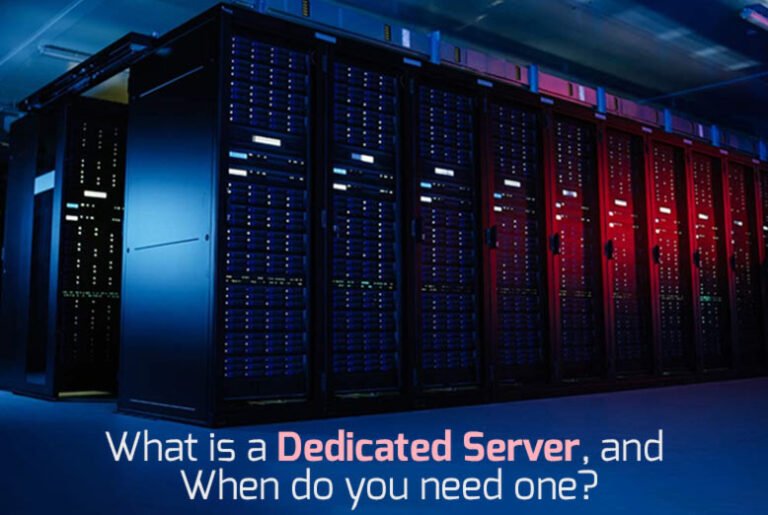First-time website owners opt for shared hosting solutions because they are affordable and offer resources, such as CPU, RAM, and storage, with limited control and scalability. However, as your website grows, your hosting infrastructure must also increase. But, with shared it is challenging to scale resources and infrastructure to meet your website’s changing needs. Therefore, upgrading to a dedicated server is the next step to enhance your website performance and gain more power and control over your server.
This article covers everything you need to know about dedicated servers and when to choose them.
What is a Dedicated Server?
A dedicated server is a physical server assigned to a single individual or business. You need a server to host your website or other applications. Generally, web hosting providers manage and maintain dedicated servers and allocate them to different customers.
Depending on the type of hosting solution you choose, you may have to share your server and its resources with others. However, in dedicated hosting, you have complete control of your server environment.
Signs That You Need a Dedicated Server
As your website grows, the need for more control and better resources also arises. Here are some signs that indicate that it’s time to switch to a dedicated server:
1. High Traffic
If your website is experiencing high traffic, it might be a good idea to opt for a dedicated hosting plan. With a dedicated server, you get an isolated server environment and dedicated resources like disk space, RAM, and CPU that improve your website’s performance and ensure 99.99% uptime.
2. Need for Enhanced Security
Robust security is very important for your business, and shifting to dedicated hosting gives you complete control over your server. Moreover, with dedicated hosting, you gain root access to your server, which unlocks advanced configurations that allow you to lock down and control your data without restrictions. Moreover, dedicated servers provide an isolated environment and allow users to configure protocols, firewalls, and SSL certificates.
3. Better Control
For website owners who require more control over their website’s backend, they can opt for dedicated hosting. Upgrading to dedicated hosting provides you with complete flexibility to make changes to your server without any problems.
Benefits of Switching to Dedicated Hosting
A dedicated server is like owning your own house, which means no one will bother you, and you can do whatever you like. On the other hand, shared hosting is like sharing a house with strangers, where you have to share everything.
Here are the benefits of a dedicated server:
- Increased site speed because the server space and resources are not shared with others.
- Complete customization possibilities because the user has full root access.
- Scale resources as and when traffic increases.
Summing Up
In conclusion, if you are facing speed or security issues with your website, shift to a better and more advanced hosting solution. Dedicated hosting provides you with more control over your website without interruptions and offers a secure hosting environment, among other benefits. Additionally, when you buy a domain, pairing it with a dedicated hosting service enhances overall website performance and reliability.
Also read: How to Restore an SQL Server Database from Backup



